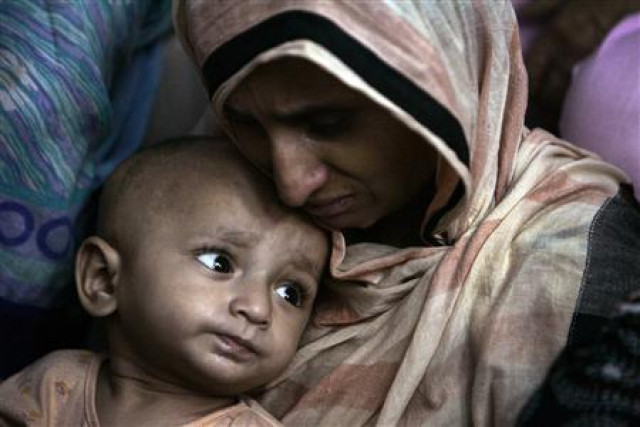New bid to control infant, maternal mortality
‘Previous projects failed due to lack of funds and ADB restrictions’

The 24/7 Basic Emergency Obstetric Care Services (EmOC) scheme was launched on November 25. It will be funded by the United Nations Children Fund (UNICEF) and monitored by the provincial coordinator for the National Programme for Primary Health Care and Family Planning (NPPHFP).
It has been launched in Layyah, Dera Ghazi Khan, Muzaffargarh and Rajanpur districts. Four Basic Health Units (BHUs) at each district have been selected and around 400 staff members recruited for the programme. An ambulance will be present at the BHUs to move patients to nearby hospitals in case of an emergency.
After three months, the number of BHUs in four districts will be increased and the programme will be extended to include Mianwali, Bhakkar and Rahim Yar Khan districts.
The programme will work towards achieving the maternal and infant mortality rate targets set under the Punjab Millennium Development Goal Programme (PMDGP). The provincial government has so far been unable to decrease the infant mortality rate from 77 to 40 per 1,000 live births and the maternal mortality rate from 300 to 140 per 100,000 live births.
Under the PMDGP, the government had made several unsuccessful efforts including the Maternal and Newborn Child Health Programme, Women Heath Project and Reproductive Health Project.
A Health Department official said that these projects failed to achieve their goals due to the Asian Development Bank’s (ADB) restrictions. He said that the ADB had prohibited the government from hiring new staff, purchasing vehicles or carrying out additional civil works. He added that it had earmarked 20 per cent of its funds for purchase of medicines and the rest for the upgrade of nursing schools, capacity building of staff and procurement of equipment.
Another reason, he said, was a shortage of funds available with the provincial government. “The ADB wanted the provincial government to take over its programmes after two years but the government did not have sufficient funds to continue them,” he said.
He said that the government might not be able to sustain the current programme once the UNICEF withdraws its funding.
Dr Akhtar Rashid, the NPPHFP provincial coordinator who is in charge of the scheme, was not available for comment.
Published in The Express Tribune, November 29th, 2010.


















COMMENTS
Comments are moderated and generally will be posted if they are on-topic and not abusive.
For more information, please see our Comments FAQ